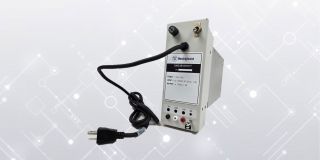What to read about nuclear energy online
How to avoid information overload on the Internet

A message from Westinghouse Electric Company Parts Business
Westinghouse delivers advanced, plug-in-ready power supply solutions that eliminate obsolescence and keep nuclear plants running safely, reliably, and future-ready.
How to avoid information overload on the Internet
When you get right down to it... to many people, nuclear power can seem rather mysterious. Fortunately, this short video takes viewers inside US nuclear power plants and explains the nuts and bolts of how a nuclear plant operates-as told by the people who actually maintain and operate them.
What will be the future influence of women in nuclear science and technology What can be done to encourage more women and girls to enter nuclear science and energy fields-and to stay in the "technical track"? How important are role models?
American Nuclear Society President-elect Donald Hoffman recently visited the ANS Student Section at Chattanooga State Community College. Hoffman thanked the students for their outstanding participation at the recent Department of Energy public hearing on proposed mixed oxide fuel technologies for Tennessee Valley Authority nuclear plants, and laid out a vision for the future for ANS, in a presentation before a large audience of 60-70 attendees.
Albert Einstein's famous equation E=mc² explains, of course, why a nuclear power reactor can generate so much electricity in such a relatively tiny space, while using such a relatively tiny amount of fuel. Electricity from other forms of energy, say tidal or wind motion, sunlight, chemical bonds (burning things)... well, nuclear fission and fusion, thanks to E=mc², are definitely in their very own league.
The ANS Nuclear Cafe Matinee presents loyal readers-and loyal viewers-with an all-time great video: "Large Hadron Rap"!
The 14th annual North American Young Generation in Nuclear (NA-YGN) drawing contest is now underway! The drawing contest teaches 4th and 5th grade students about the wonders of nuclear science and technology by engaging them creatively. This year's theme is Roddy Nuclear Builds Tomorrow-with an emphasis on the importance of new plant construction for the future of nuclear and growing energy demands.
A free college-level internet course surveying the theory, design, and operation of commercial nuclear power reactors is starting soon! This course will be taught by Larry Foulke, PhD, PE, former president of the American Nuclear Society.
From the American Nuclear Society to teachers interested in the nuclear sciences
The Higgs boson caused quite a stir earlier this year when its discovery was announced on July 4. After all, the Higgs field, as proven by the existence of the Higgs boson, is basically the reason that matter has "mass" in our universe.
Running a nuclear reactor is so easy that undergraduates can do it. And they do, at the research reactor at Reed College in Portland, Oregon (by the way, that's where Steve Jobs went to school).
Labor Day is the traditional marking point for the end of summer-and time for back-to-school activities for K-12 students. Back to School season also provides an opportunity to help students understand the kind of work that nuclear engineers and scientists do. Your participation can interest a young person in pursuing an engineering career!
This past week, I had the privilege of participating in the Nuclear Technology Workshop for Teachers in Charlotte, N.C. The all-day event was part of the International Youth Nuclear Congress (IYNC)/North American Young Generation in Nuclear (NA-YGN) Public Information Day, and it had a great turnout-about 50 area science teachers were in attendance.
During my undergraduate studies in art school, I created a body of artwork about micro-organisms. After taking my two required biology courses, I was completely obsessed with cyano-bacteria and diatoms (they are still a central theme in my home décor). Learning that every cell in my body has mitochondrial RNA identical to these ancient life forms floored me, and made me feel completely connected to the planet and all of the other life on it in a very concrete way.
I have no special talents. I am only passionately curious.
The American Nuclear Society's Center for Nuclear Science and Technology Information and the ANS Outreach Department will sponsor a one-day teacher workshop on Saturday, June 23, in Chicago, Ill. The workshop-Detecting Radiation in Our Radioactive World-is for science educators, including elementary, biology, chemistry, earth science, physics, physical science, life science, environmental, and general science teachers. The workshop will be held the day before the beginning of the ANS Annual Meeting in Chicago.
What is life going to be like after fossil fuels?
The 2012 Nuclear Energy Assembly wrapped up this Wednesday evening in Charlotte, NC. The Nuclear Energy Assembly is the nuclear energy industry's annual conference, attracting leaders worldwide from all segments of the industry.
 Ready for the next leap in your career? Who doesn't like extra letters after their name? Well then, why not get a Professional Engineer license?
Ready for the next leap in your career? Who doesn't like extra letters after their name? Well then, why not get a Professional Engineer license?